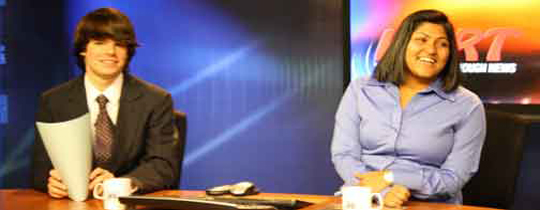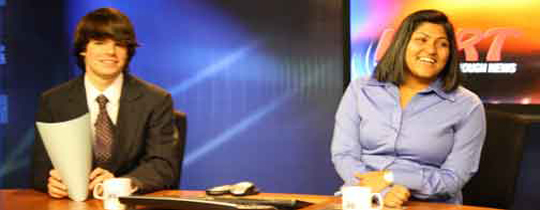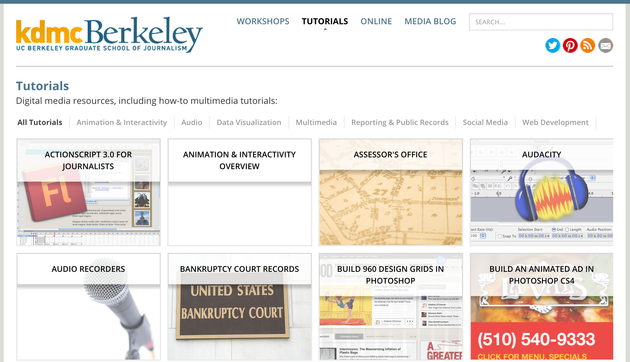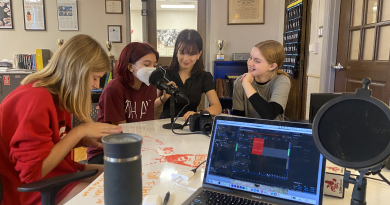Speaking Like a Broadcaster

For the past two years I’ve helped our large group speech team as an assistant coach in the category of TV news. With that experience in mind I would like to give you some helpful tips on speaking as a broadcaster, which you can go over with your students:
- Use upward inflection. This becomes a tricky balance of ending your sentence loudly, so you don’t lose the last word, but not having it sound like a question. The best tip we gave for accomplishing that was to make sure you over-enunciate all your words and keep your volume at a public speaking level, even if you’re wearing a mic. The key idea is that you don’t want to drop off the end of your sentences.
- Keep your energy level high. This doesn’t mean that you need to chug a Redbull and scream at the camera, but be into what you’re talking about. If you’re bored the audience will become bored. (This can also be tied in to having the right content selected for broadcast.)
- Make eye contact with the camera. Since the tone of broadcast writing is more conversational you want to make it seem like you’re having a conversation with the viewer.
- Try to avoid cold reads. If you have the script available beforehand you should practice reading through it two or three times so you don’t stumble over words or phrases. Then if you read your script off of cue cards or a teleprompter it will flow in a very smooth way.
When many of our speech students begin in TV news they are nervous and stumble over their words. They use downward inflection at the end of their sentences, which causes the ending and sometimes the whole meaning to be lost. They also look at co-anchors or at the coach/director standing off camera instead of looking into the camera at the audience.
However, after a couple weeks of rehearsal they are much more poised in front of the camera. All of their words are understandable, and they seem excited about what they’re saying. They look into the camera and engage with their audience. When this happens it leads to higher quality productions. Washington High School’s TV News team has received an All-State speech nomination twice in the last three years for their final product in the TV news category.
I hope many of you are able to take these tips and work them into your programs to help improve students who may not have much background in broadcasting.
I must acknowledge Washington High School’s head speech coach, Carrie Tinkham, and her sister, Anne Fattig, for providing me with almost all of the information in this article.
-Kyle Phillips






Great post. I just covered these issues with my Broadcast 1 class. I recorded this when we went into the TV studio to discuss how we would have our students present a headline news cast and read off of a teleprompter for the first time.
http://bit.ly/AcDXRw